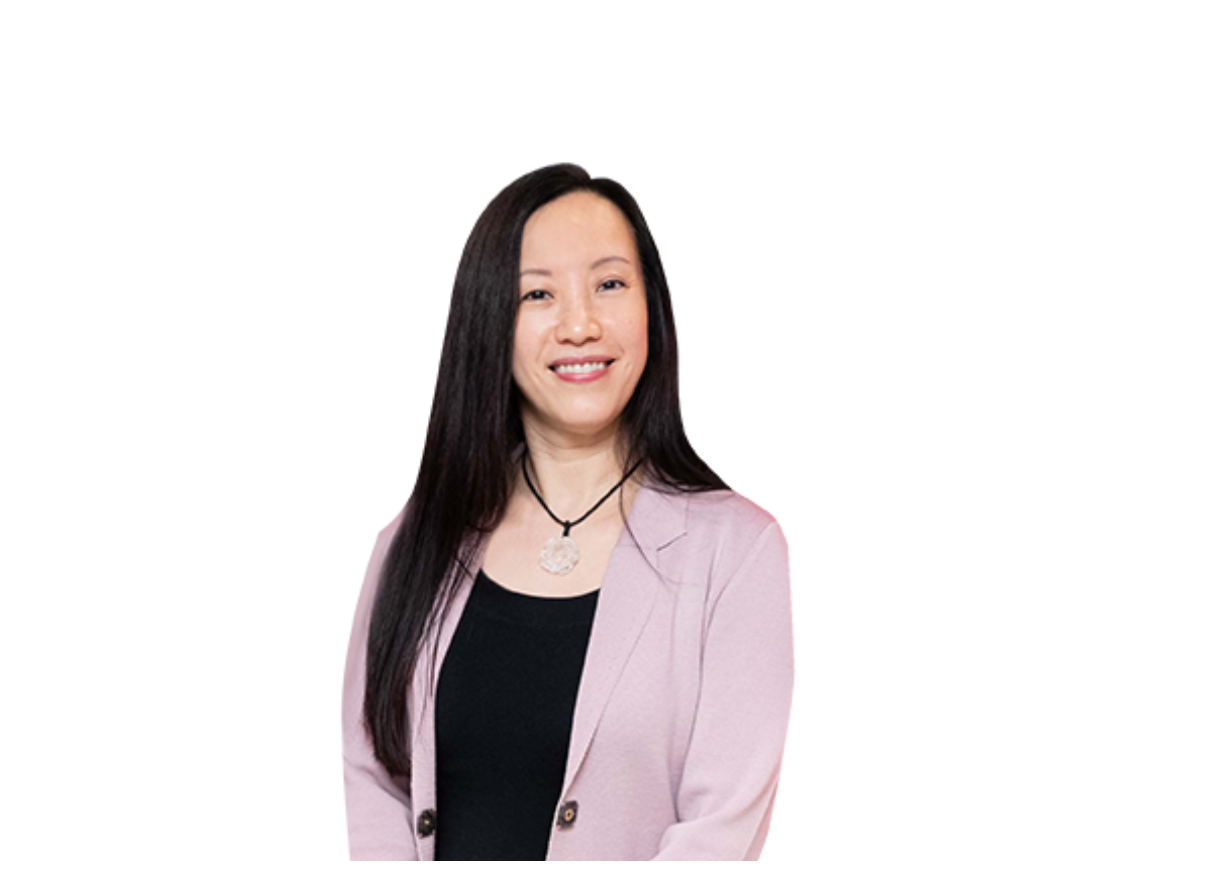Six months ago, we pointed to four key factors that adversely affected our 2020 first-half financial performance. These were:
- (1)pressure on net interest margin (NIM) and net interest income due to low interest rates;
- (2)the impact of market volatility on our insurance business;
- (3)the impact of economic uncertainty on expected credit losses (ECLs); and
- (4)a net deficit on property revaluation.
Although the contribution to income from our life insurance business contracted year-on-year, we recorded a good recovery in the second half. We achieved a 61% increase in revenue compared with the first half by robustly managing our investment portfolio as equity markets became more active.
The other three factors, however, continued to weigh on our full-year performance. In particular, there was even greater downward pressure on NIM and net interest income in the second half with the decline in HIBOR.
In credit risk management, our strategy continued to be prudent. On a year-on-year basis, our ECLs increased by 49% to HK$2,738m. However, the ECL charge in the second half was 44% lower than in the first half, reflecting the adequacy of our credit loss reserves as well as some signs of an improving economic outlook.
While investment property revaluation recorded a deficit in 2020 against a surplus in 2019, the decline in the second half was less severe than that in the first half.
As a result of these factors, attributable profit for 2020 was down by 33% year-on-year at HK$16,687m.
Our key financials show the impact of the market challenges, but they also reflect our prudent approach and robust control of the balance sheet. Our strategy to invest in digital capabilities, including our omni-channel services platform, facilitated continued business flows amid social distancing measures. Our enhanced agility will enable us to move quickly on new opportunities as economies recover.
The investments and actions we have taken to transform our business over the past several years supported our swift and seamless adaptation to the realities of the pandemic.
Leveraging our digital strength, we continued to provide convenient and easy remote access to banking and wealth management services, while also launching new initiatives to further benefit customers.
We rolled out about 475 digital innovations and enhancements in 2020, more than three times the number in 2019. Major new initiatives such as Savings Planner, SimplyFund and Invest Express have made money management and investment simpler and more accessible, especially for the younger segment. For commercial customers, new digital solutions have helped them to more efficiently track real-time transactions and manage their accounts and cash flows.
In November we unveiled our ‘Branch of the Future’ service concept at MOSTown in Ma On Shan. It combines innovative technology and service models with in-person expertise and tailor-made services from our team of wealth management professionals to deliver best-in-class, customer-centric banking experiences.
New and enhanced partnerships with market leaders in other sectors such as Dairy Farm and OpenRice have added further value for our customers through spending offers and lifestyle benefits and conveniences.
Our subsidiary Hang Seng Indexes Company continues to track the pulse of the Hong Kong market and support the development of new market segments. The July launch of the Hang Seng TECH Index to follow the performance of the 30 largest innovative technology companies listed in Hong Kong was very well received in both local and international markets.
While technology is central to our long-term strategy, our real competitive strength rests in our people. I am deeply proud of the way in which my colleagues have stepped up to the many challenges created by COVID-19 to ensure uninterrupted services for our customers, while showing care and compassion to the community and each other.
An important part of our business transformation strategy has been to create a new, highly collaborative culture that gives our people more agency to try new ideas, speak up and take decisions. Our people provide the creative energy that drives our business forward. Their professionalism and expertise are what make Hang Seng a highly trusted brand.
Our business is guided by four key brand values – customer-centric, progressive technology, creativity and corporate social responsibility – which are derived from growing and evolving with the community. I am pleased to note our efforts are being recognised. In a banking service survey conducted in the third quarter of last year, we ranked first in Hong Kong for customer service, creativity and inclusion. We also achieved a notable strengthening of our brand appeal among young people, who play an important role in our future business growth.
Financial Overview
As outlined above, the difficult operating environment significantly affected our financial performance.
Net operating income fell by 20% to HK$33,330m.
Net interest income dropped by 17% to HK$26,906m. We recorded increased volumes from balance sheet growth and a 6% rise in average interest-earning assets. However, the persistent low interest rate environment and decline in HIBOR continued to tighten deposit spreads. Year-on-year, NIM fell by 47 basis points, or 21.4%, from 2.20% to 1.73%.
Non-interest income dropped by 19% to HK$9,162m. Income from many of our fee-generating services was down due to the pandemic’s disruptive impact on commercial activity and consumer spending. One highlight was fee income from stockbroking and related services, which rose by 58%, as we benefited from increased investor activity in the second half and the popularity of our securities trading mobile app, Invest Express.
Net trading income and net income from financial instruments designated at fair value through profit or loss together grew by 18%, due mainly to increased income from foreign exchange activities.
Net income from assets and liabilities of the insurance business measured at fair value fell by HK$766m to HK$823m, reflecting unfavourable market movements in the first half followed by some recovery in the second half.
Net insurance premium income was down by 2%, with lower income from new business sales largely offset by more renewals business.
Change in ECLs and other credit impairment charges increased by HK$901m to HK$2,738m.
During the year, we proactively supported clients through the difficulties of the pandemic by offering a number of financial relief measures and arrangements. As at the end of December, gross impaired loans and advances as a percentage of gross loans and advances to customers were 0.60%. However, much of the impacted loans and advances are secured by tangible collaterals. We believe our ratio is on the low side of the industry average.
Operating expenses were on par with 2019. Our cost efficiency ratio was 36.6%.
Operating profit fell by 30% to HK$20,125m. Operating profit excluding the change in ECLs and other credit impairment charges declined by 25% to HK$22,863m.
Investment property revaluation recorded a net deficit of HK$636m, compared with a net surplus of HK$35m in 2019, reflecting softer sentiment in the commercial property market.
Profit before tax was down by 33% at HK$19,414m. Attributable profit fell by 33% to HK$16,687m.
Our capital base remains strong. At 31 December 2020, our common equity tier 1 capital ratio was 16.8%, our tier 1 capital ratio was 18.5%, and our total capital ratio was 20.0%, compared with 16.9%, 18.7% and 20.8% respectively at 2019 year-end.
Our strong financial fundamentals will allow us to strategically deploy resources to maintain momentum in our core businesses when economic activity picks up again post-pandemic.
Moving Forward Together for Future Success
The consequences of COVID-19 are still playing out. Financial markets have shown some signs of improvement since the second half of 2020, but uncertainties continue to weigh on the real economy around the world. It could still be some time before we see economic recovery and a gradual return to pre-pandemic levels of business and consumer activities. The low interest rate environment will continue to put pressure on the net interest margin, which will also provide challenges for us.
This year, Hang Seng will proudly celebrate 88 years of service and connection to the Hong Kong community. Since our founding in 1933, we have established ourselves as a trusted brand and the leading local bank by standing with the people of Hong Kong in good times and in bad. We are transforming our business to enhance our long-term capacity to positively transform the lives of customers and the community.
With a more dynamic corporate culture and investing in people and technology, we are building a business that will grow together with our customers, offering innovative, best-in-class services to support them in achieving their financial goals. At the same time, we will continue to play an active role in social development and environmental programmes.
2020 will be a difficult year to forget. It reminded us of the vital importance of human connections. We have nurtured and grown these connections with our customers and the Hong Kong community over the past 88 years. This bond is firm and deep. From this, we have drawn strength to overcome many challenges in the past. We will do so again to move past COVID-19 and build an even better and more sustainable bank, and community, for our future generations.
Finally, on behalf of the management team and all Hang Seng staff members, I would like to wish our Chairman, Raymond Ch’ien, all the very best for after he retires later this year. Over the last 13 years, we have benefitted greatly from his wisdom and guidance. We could not have accomplished so much without his support. We are delighted that Independent Non-executive Director Irene Lee will be our new Chairman. With her rich experience and far-sighted vision, we look forward to working even more closely with her to take the Bank to its next level of success.

Louisa Cheang
Vice-Chairman and Chief Executive
23 February 2021
















